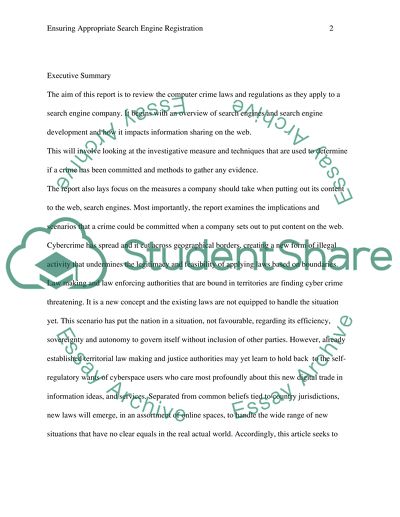Cite this document
(“Ensuring Appropriate Search Engine Registration Essay”, n.d.)
Retrieved de https://studentshare.org/information-technology/1392668-ensuring-appropriate-search-engine-registration
Retrieved de https://studentshare.org/information-technology/1392668-ensuring-appropriate-search-engine-registration
(Ensuring Appropriate Search Engine Registration Essay)
https://studentshare.org/information-technology/1392668-ensuring-appropriate-search-engine-registration.
https://studentshare.org/information-technology/1392668-ensuring-appropriate-search-engine-registration.
“Ensuring Appropriate Search Engine Registration Essay”, n.d. https://studentshare.org/information-technology/1392668-ensuring-appropriate-search-engine-registration.


